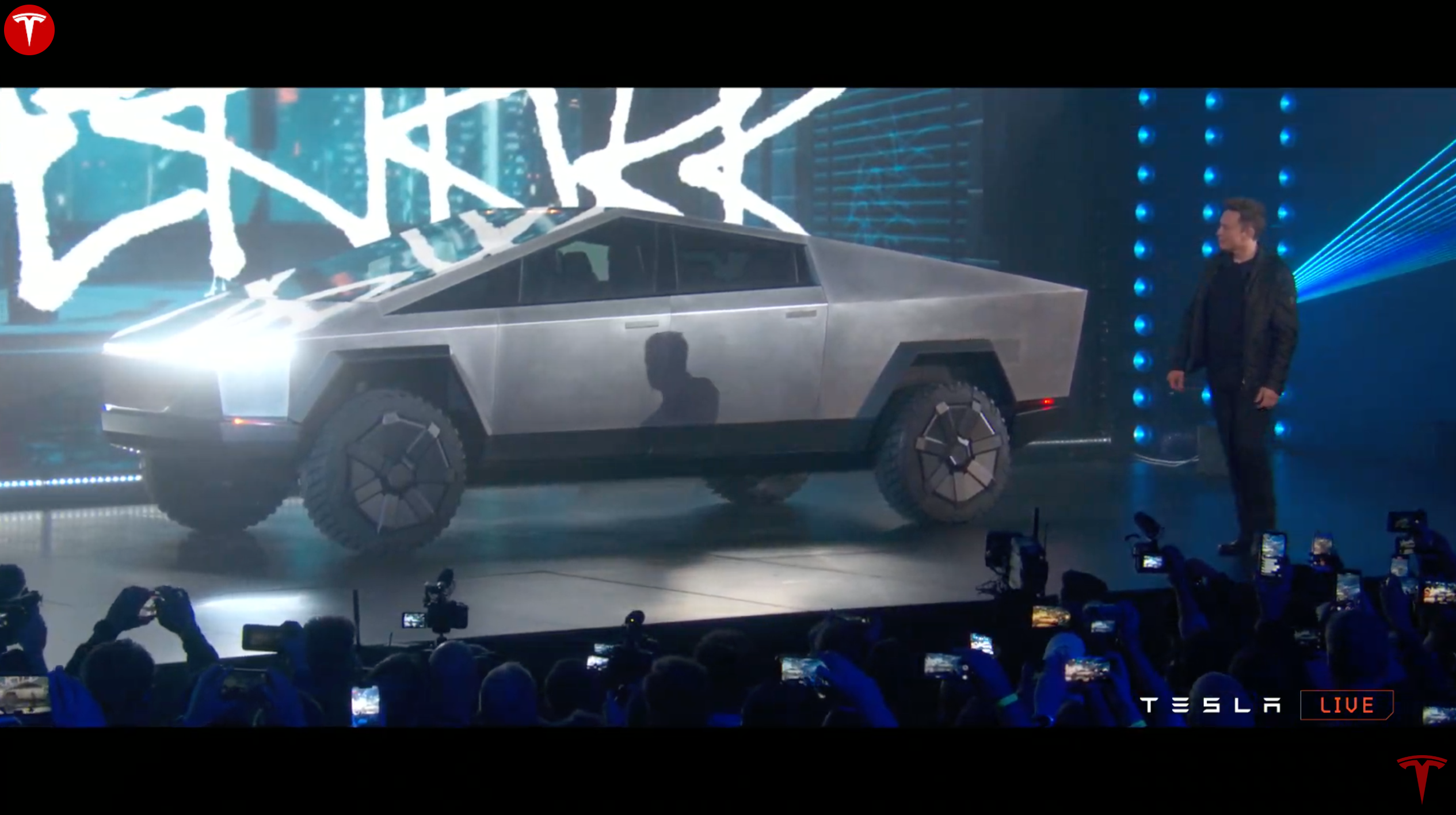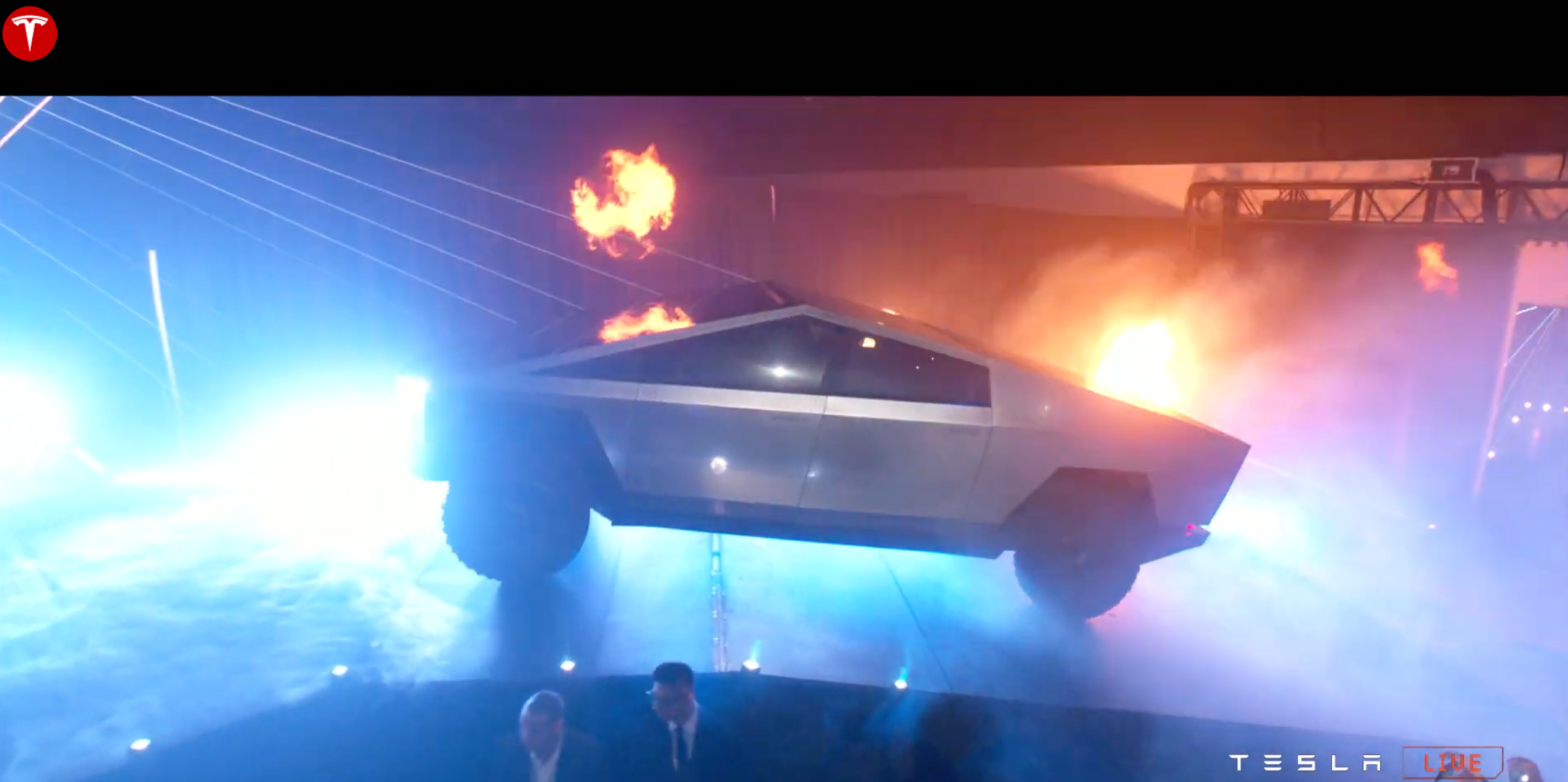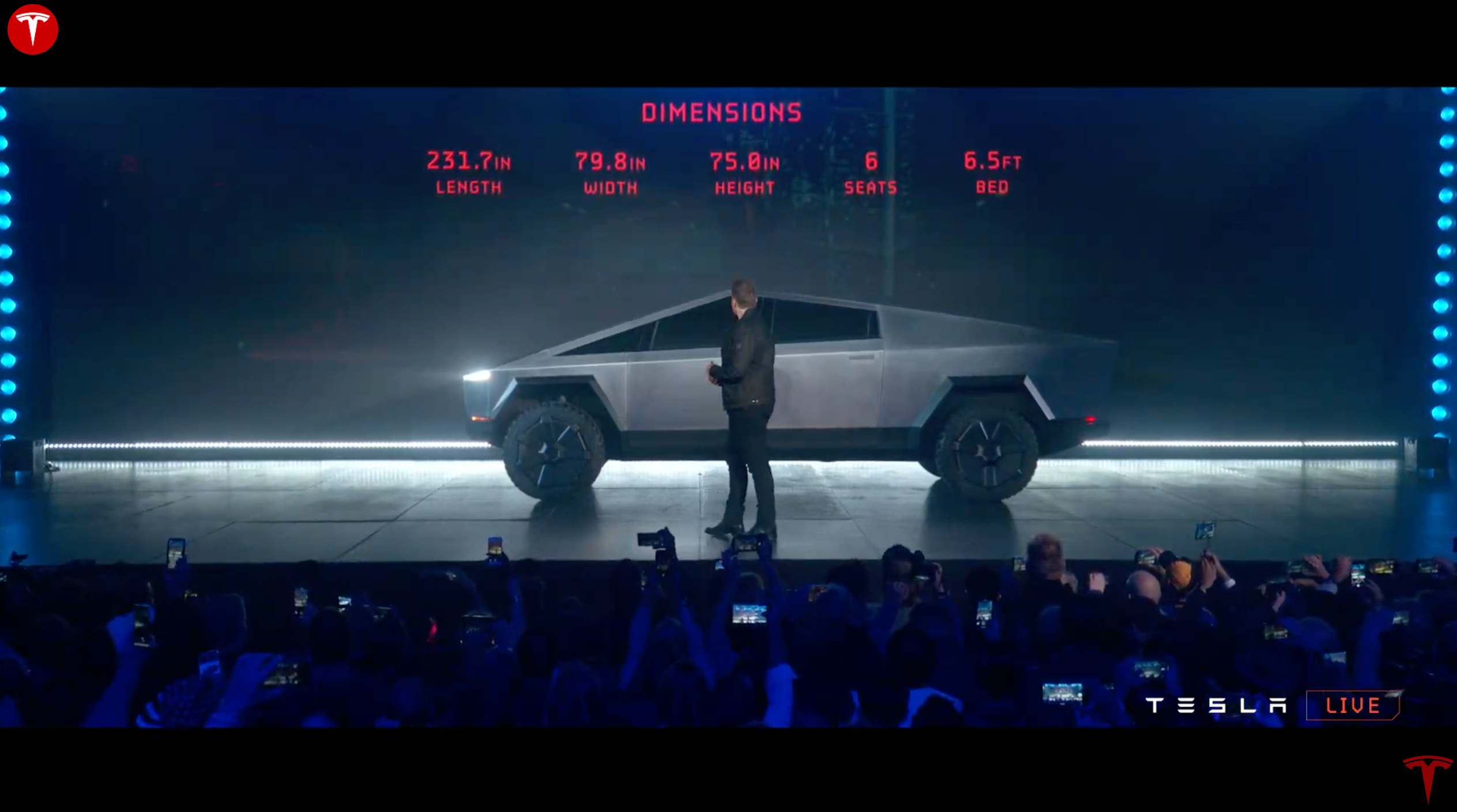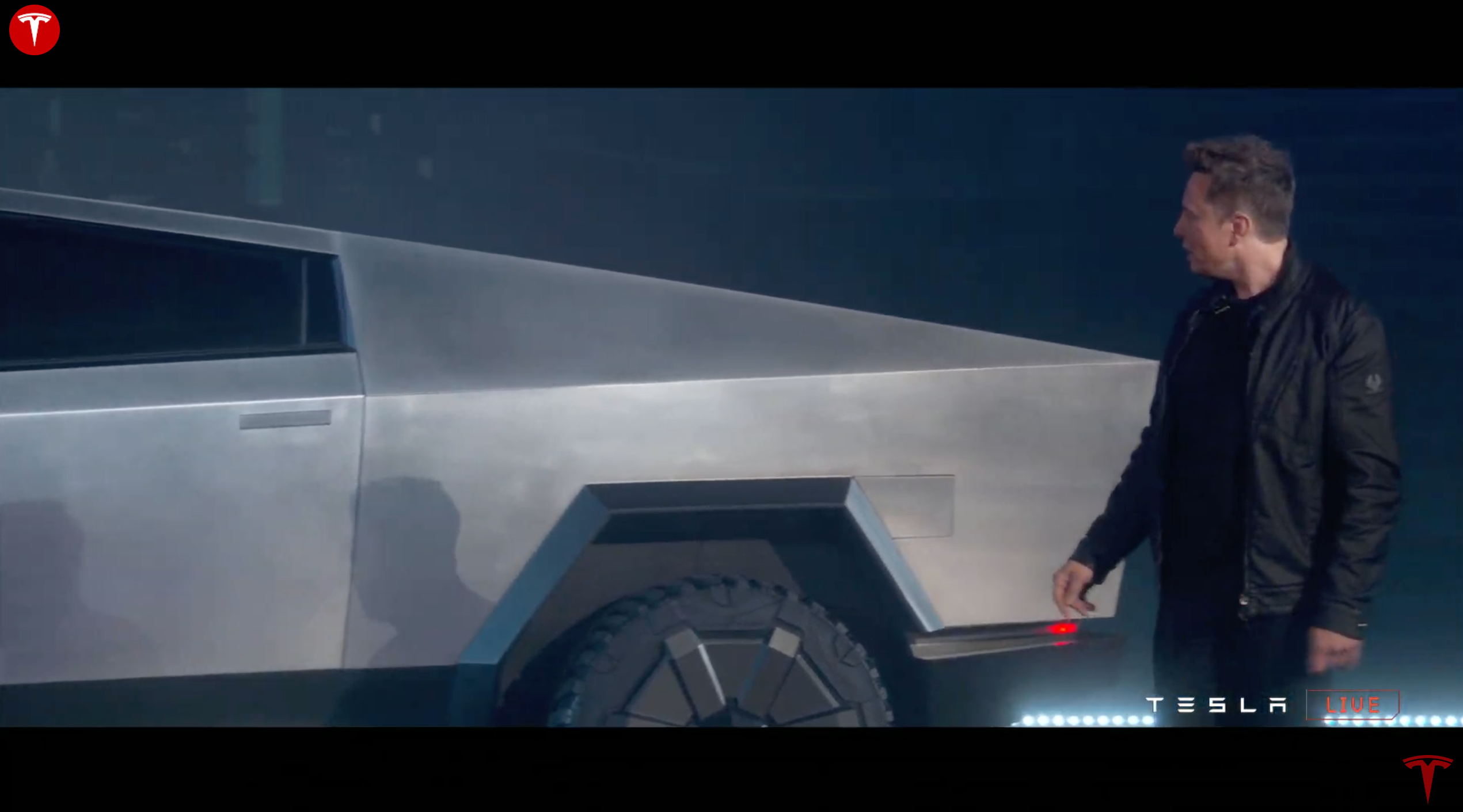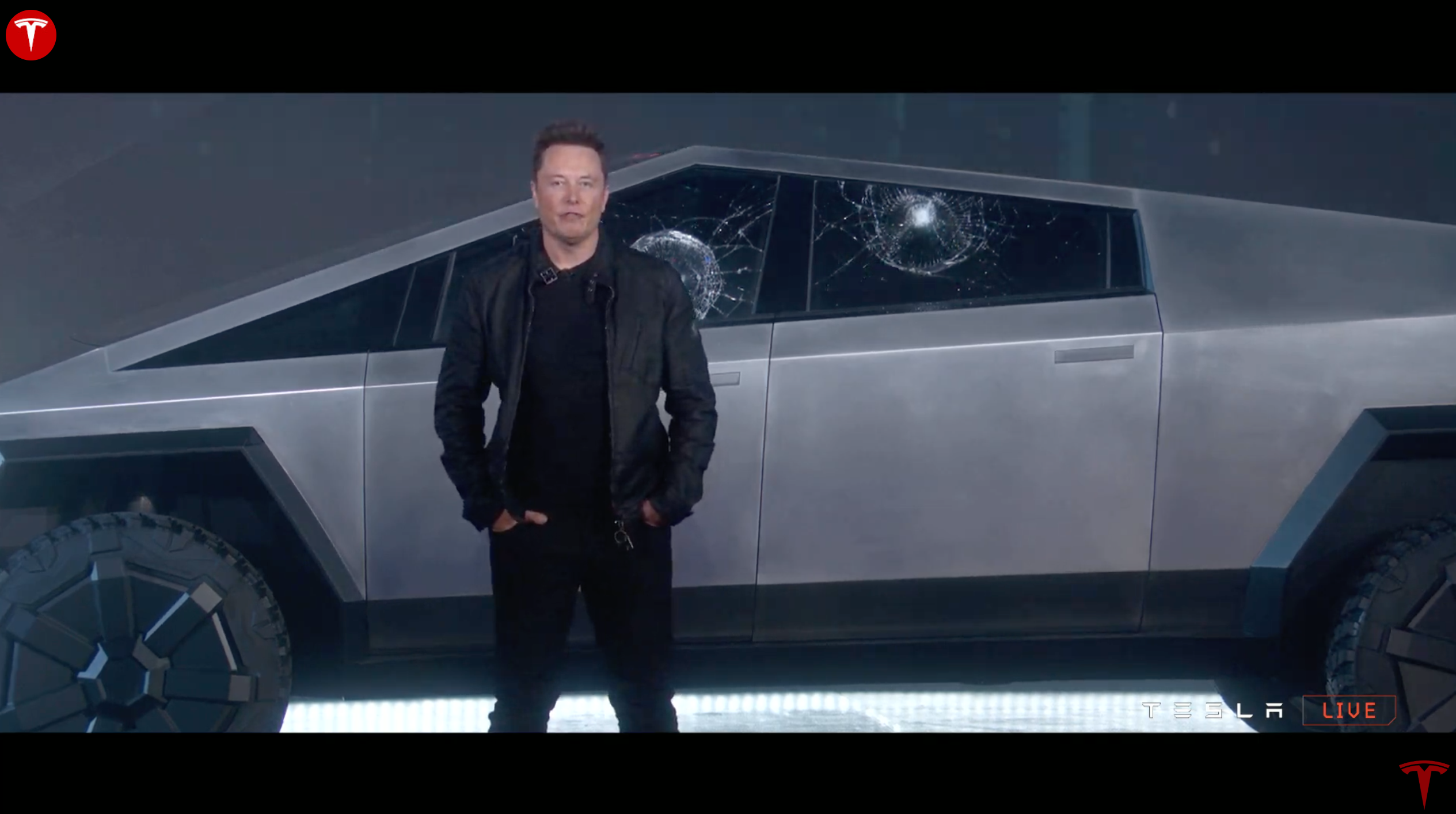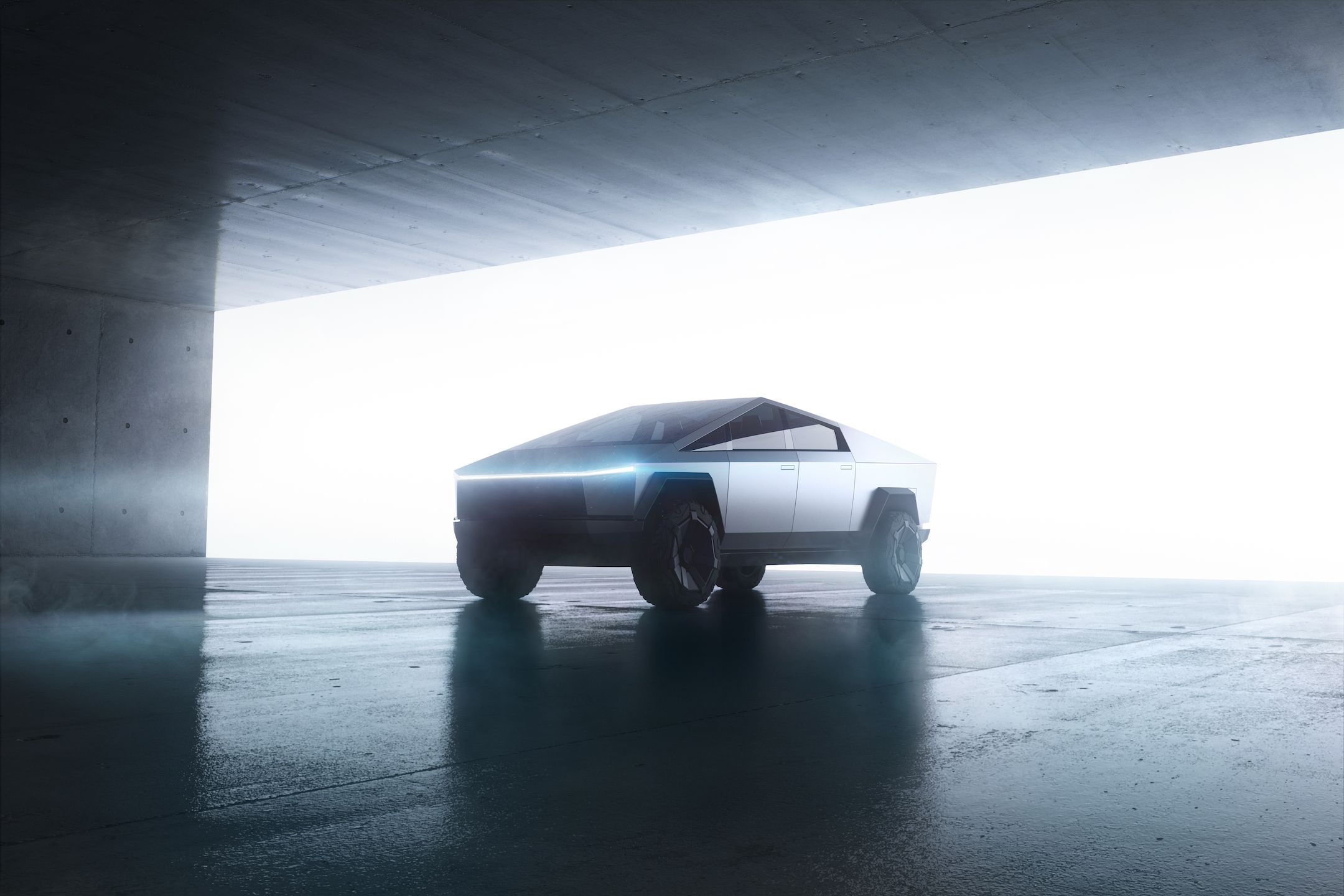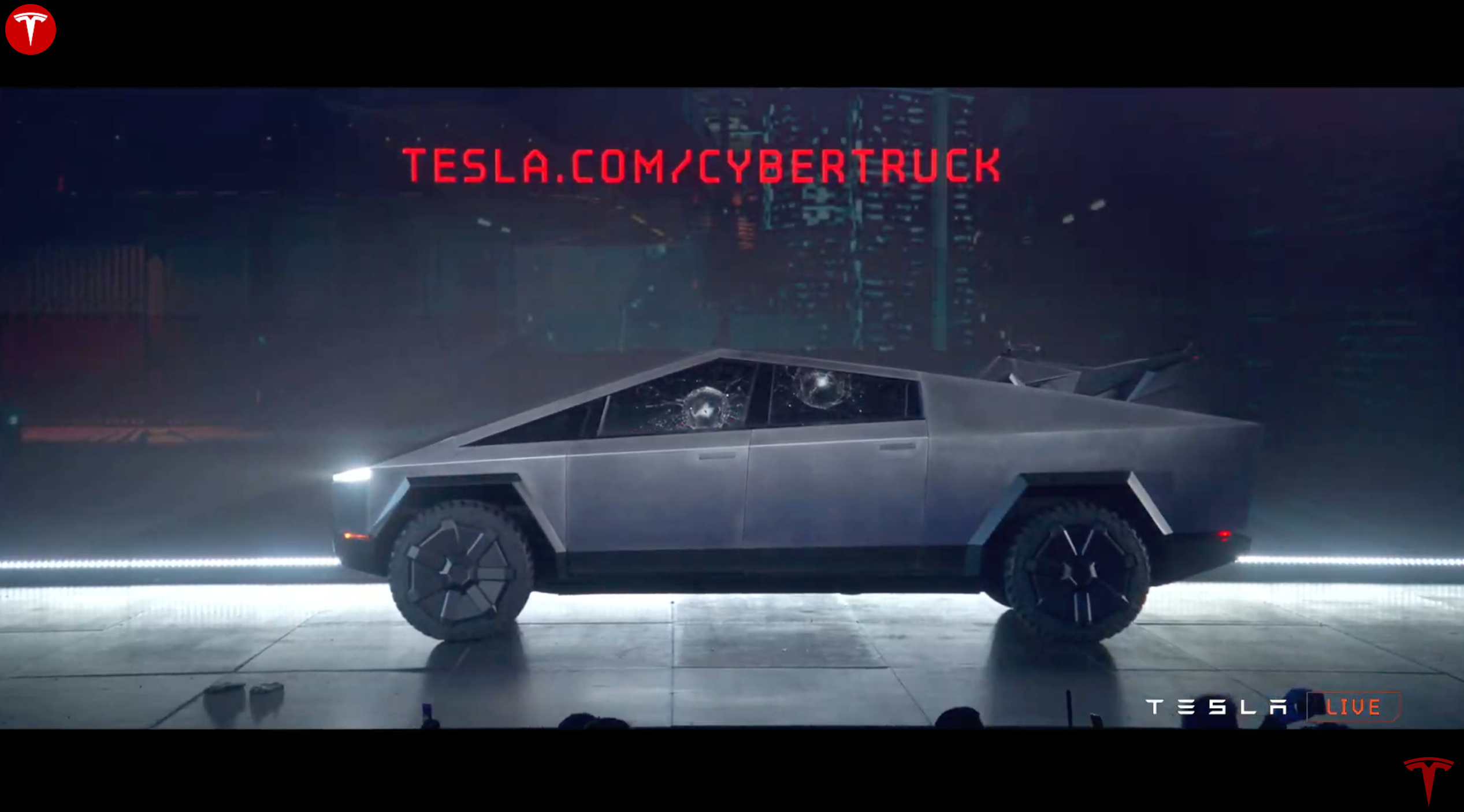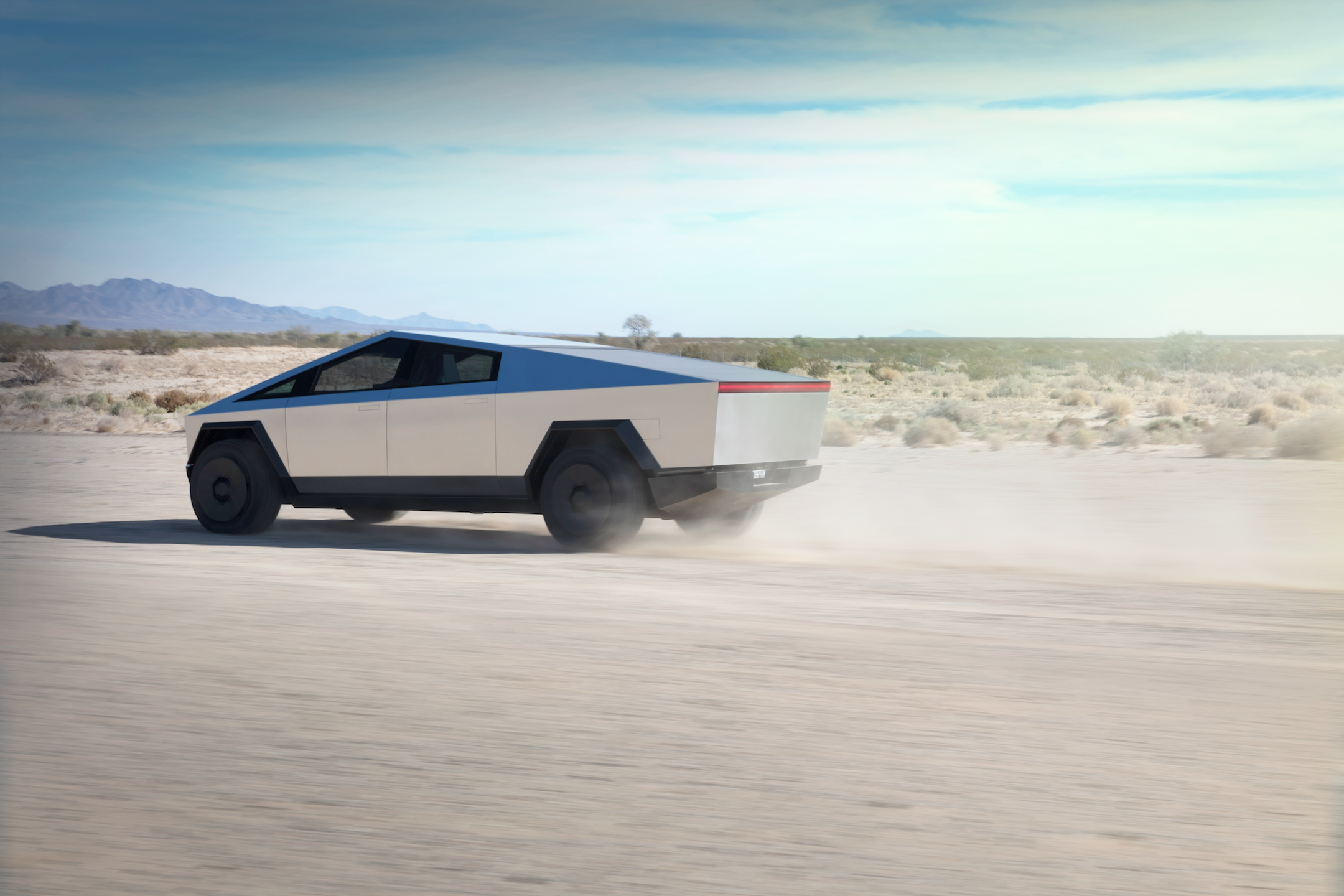The launch event of the Tesla Cybertruck began with a quick slideshow where images of well-known trucks from the past five decades rolled on the screen as Tesla CEO Elon Musk talked about a need for change and evolution. The Cybertruck, as a result, was always going to be daring in more ways than one but has Tesla gone too far? Is this really what truck buyers have in mind when thinking about switching from a gas-guzzling truck to an electric one? Do they even want to switch to an electric truck at all?
Is the Cybertruck really what customers have been asking for?
Before Thursday night, little was known about the Cybertruck, Tesla's groundbreaking foray into the world of pickups.
It has finally happened. After a delay of a few months, Tesla's got the world at its feet with a new impressive release, one that could prove to be pivotal in the history of the EV upstart. That's because this latest product is not a sports car, nor a sedan or crossover.
Tesla Cybertruck specifications
|
Range: |
500+ miles |
|---|---|
|
0-60 mph acceleration: |
2.9 seconds |
|
Towing capacity: |
More than 14,000 lbs |
|
Payload: |
Up to 3,500 lbs |
|
Horsepower |
800 HP |
|
Torque |
1000 LB-FT |
|
Vault length: |
6.5 feet |
|
Storage capacity: |
100 cubic feet of exterior, lockable storage including the vault, frunk, and sail pillars. |
|
Suspension: |
4” in either direction |
|
Touchscreen size: |
17” |
|
Body: |
Ultra-Hard 30X Cold-Rolled stainless steel. If there was something better, we’d use it. |
|
Seating capacity: |
Up to six adults |
|
Charging: |
Can be charged at home, at Destination Charging locations, and with our network of more than 14,000 Superchargers, including on our newest V3 technology, which is helpful for long hauls and towing. |
Ford sold over 700,000 units of its F-Series thus far this year, proving it can match its 1+ million sales figure achieved in 2017 when the runner-up best-seller was Chevy's Silverado with 661,000 units sold, 60,000 units ahead of the Dodge Ram. Musk knows full well the importance of pickup trucks in America and he made it clear from the outset last night, during the launch event that took near the hangars where Space X rockets built. "If we don't have a pickup truck, we can't solve .
You see, Musk's bet with the Cybertruck could well be his most dangerous yet as a carmaker: he tries to push an innovative product into a highly traditional segment that doesn't even like to hear a truck is powered by a four-pot instead of a V-6 or a V-8. According to Forbes, "pickup trucks make up about 15% of U.S. vehicle sales" annually while plug-in EVs achieved a scant 2.1% market share in 2018.
With these numbers in hand let's go back and talk about just how unusual the Cybertruck is. The figures alone are great, we can't help but agree, but then there's the packaging. The Cybertruck looks like something that was drawn by Tesla's Chief Designer, Franz von Holzhausen, back when he was five and all he had at his disposal was a ruler. It's full of right angles, plain surfaces, pointy edges, and almost devoid of features. The headlights are one big, continuous bar of LEDs running across the width of the front end with the taillights playing the same game in the rear.
It doesn't even have a flat roof. Instead, the slope of the windscreen meets with the slope of the rear tonneau cover that conceals the bed somewhere above the driver's head and creates another right angle. The truck is, in essence, a triangle sitting on its hypotenuse. There's some reason behind the madness with that roofline helping with stability, reducing air resistance and making the car stiffer (the peak of the roof acts as a stressed member for the exoskeleton unibody chassis).
Want to know how a pickup should look like? Check the Rivian R1T. Musk would probably tell us we're stuck in the past as he did during his presentation talking about modern pickups that still feature body-on-frame construction, a design philosophy that's stood the test of time for generations. But what Musk is missing here is that pickup truck buyers don't necessarily want a unibody truck. They want a rugged, practical, easy to maintain truck with big mirrors, big sidesteps, and lots of torque that can tow a lot.
The Tesla pickup does tick some of these boxes (it can tow 6,000 pounds more than the F-150 Supercrew) but can it do everything a gas-guzzling or diesel-drinking pickup can? Can you trust it to tow your boat during your week-long boating trip without running out of juice somewhere in the middle of nowhere, miles away from any supercharger? Can you bet your life on the fact that the mileage won't drop by 20%, 30%, or 40% when you start towing 10,000 pounds with it? And, finally, isn't that angled tonneau cover a bit useless given you have to retract it to fit anything remotely tall in the box?
Then there's the issue of recharging your truck when you're towing something. Edmunds' Dan Edmund told USA Today he had to disconnect the Airstream trailer he was pulling in the back of a Model X each time he stopped to recharge the batteries at a supercharger. If such tedious hurdles will also be commonplace with the Cybertruck, it may deter some prospecting customers that are used to the ways of operating an ICE-powered truck.
Then there's the fact that, in the case of truck owners, marketers speak a lot about brand loyalty as a key aspect. In other words, a Chevy Silverado fan will keep buying a Chevy Silverado and the same goes for a guy who's been buying Ford F-150s for 20 years now. All the ads for trucks are loaded with messages about loyalty and self-image as pickups are powerful symbols as well as being workhorses.
"Truck ads speak directly to the experience of being a workingman. They appeal to any man that has wanted to get his hands dirty, flee the city, and have mastery over a machine," says Marketing-Schools.org. Automakers have been peddling on the same sort of messages for decades and they still seem to work. Have you seen anyone getting their hands dirty during the Cybertruck's launch? Everyone was wearing Total Recall-esque clothing and protective gloves as if it was a bona fide fashion show. A truck that doesn't dent does deliver a message of particular ruggedness that can transfer to the driver, on a psychological level, but is that enough? Is knowing the cold-rolled stainless steel of your truck can stop 9mm bullets enough to make you feel bad-ass like you should be feeling behind the wheel of a high-riding half-ton truck?
We already know Tesla's core clientele is crazy about its products to an extent that isn't matched even by the most loyal pickup fans but we don't think Musk only wants to see his $40,000 truck end up parked in the garage of a Californian who also owns a Model 3. After all, that's why he pushed for that affordable MSRP so that it could chip in at the market share of the gas-guzzling juggernauts from GM and Ford Motor.
According to a 2018 CarGurus survey, only 4% of vehicle owners said the body style they'd most likely consider for an electric vehicle was a pickup truck and that's why Tesla's got a mountain to climb to reach its goal and it's a tall one. While pickup ads and the pickups themselves have never boasted about how 'green' they are, we're surely reaching a tipping point as more and more players in the industry invest in electric trucks.
At the end of the day, only time will tell if the most outrageous Tesla ever will fly or fail but we're happy there are still people in the industry willing to risk going from hero to zero instead of just following what can be considered as 'the beaten path.' And, hey, many didn't think the Model S, Model X, or Model 3 would make it either and they did so let's give the Cybertruck the benefit of the doubt and a few years to stretch its legs before we cast final judgment on Musk's latest crazy four-wheeled creation.

